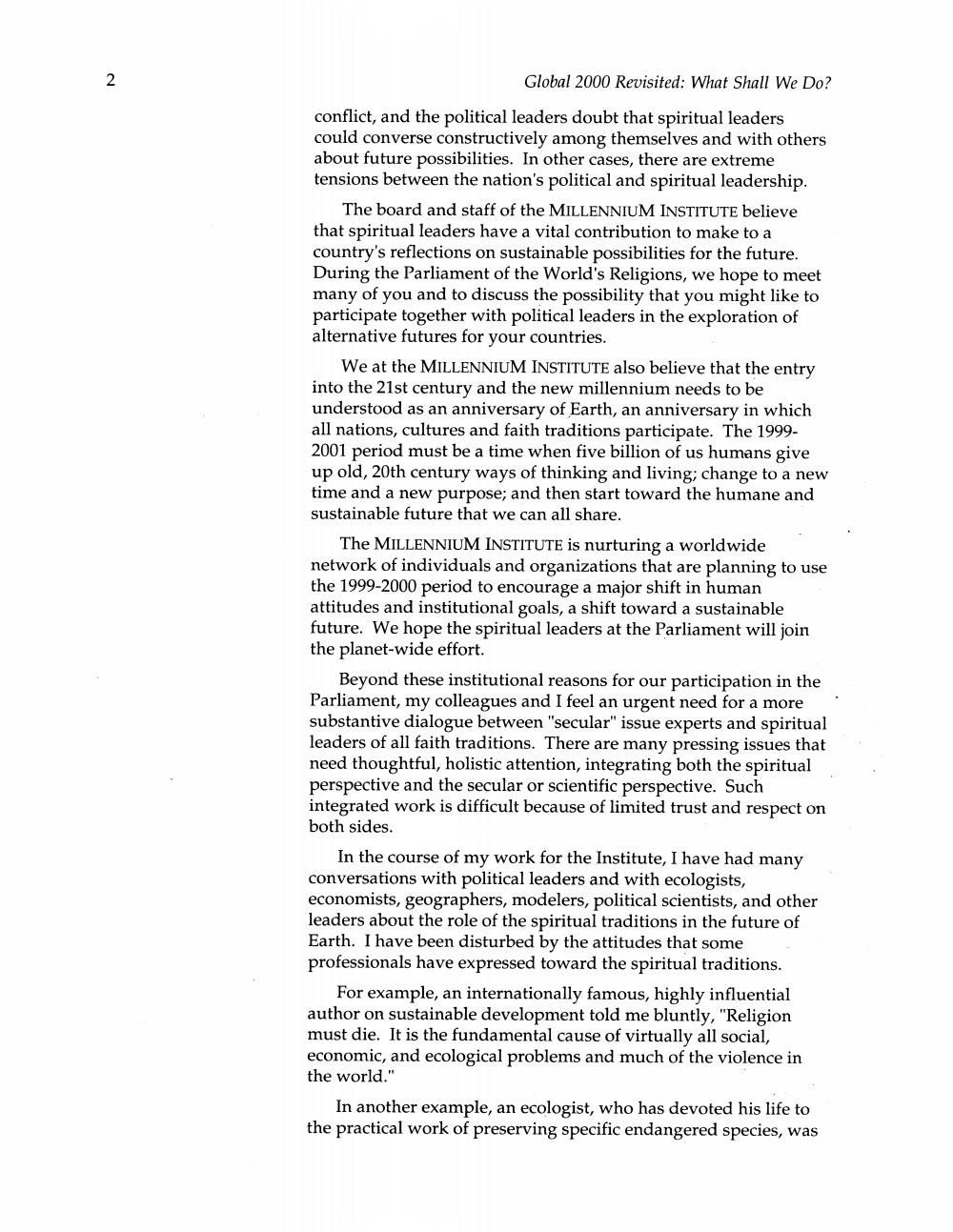Book Title: Letter To Our Spiritual Leaders Author(s): Publisher: View full book textPage 2
________________ Global 2000 Revisited: What Shall We Do? conflict, and the political leaders doubt that spiritual leaders could converse constructively among themselves and with others about future possibilities. In other cases, there are extreme tensions between the nation's political and spiritual leadership. The board and staff of the MILLENNIUM INSTITUTE believe that spiritual leaders have a vital contribution to make to a country's reflections on sustainable possibilities for the future. During the Parliament of the World's Religions, we hope to meet many of you and to discuss the possibility that you might like to participate together with political leaders in the exploration of alternative futures for your countries. We at the MILLENNIUM INSTITUTE also believe that the entry into the 21st century and the new millennium needs to be understood as an anniversary of Earth, an anniversary in which all nations, cultures and faith traditions participate. The 19992001 period must be a time when five billion of us humans give up old, 20th century ways of thinking and living; change to a new time and a new purpose; and then start toward the humane and sustainable future that we can all share. The MILLENNIUM INSTITUTE is nurturing a worldwide network of individuals and organizations that are planning to use the 1999-2000 period to encourage a major shift in human attitudes and institutional goals, a shift toward a sustainable future. We hope the spiritual leaders at the Parliament will join the planet-wide effort. Beyond these institutional reasons for our participation in the Parliament, my colleagues and I feel an urgent need for a more substantive dialogue between "secular" issue experts and spiritual leaders of all faith traditions. There are many pressing issues that need thoughtful, holistic attention, integrating both the spiritual perspective and the secular or scientific perspective. Such integrated work is difficult because of limited trust and respect on both sides. In the course of my work for the Institute, I have had many conversations with political leaders and with ecologists, economists, geographers, modelers, political scientists, and other leaders about the role of the spiritual traditions in the future of Earth. I have been disturbed by the attitudes that some professionals have expressed toward the spiritual traditions. For example, an internationally famous, highly influential author on sustainable development told me bluntly, "Religion must die. It is the fundamental cause of virtually all social, economic, and ecological problems and much of the violence in the world." In another example, an ecologist, who has devoted his life to the practical work of preserving specific endangered species, wasPage Navigation
1 2 3 4 5 6 7 8 9 10 11 12 13 14 15
